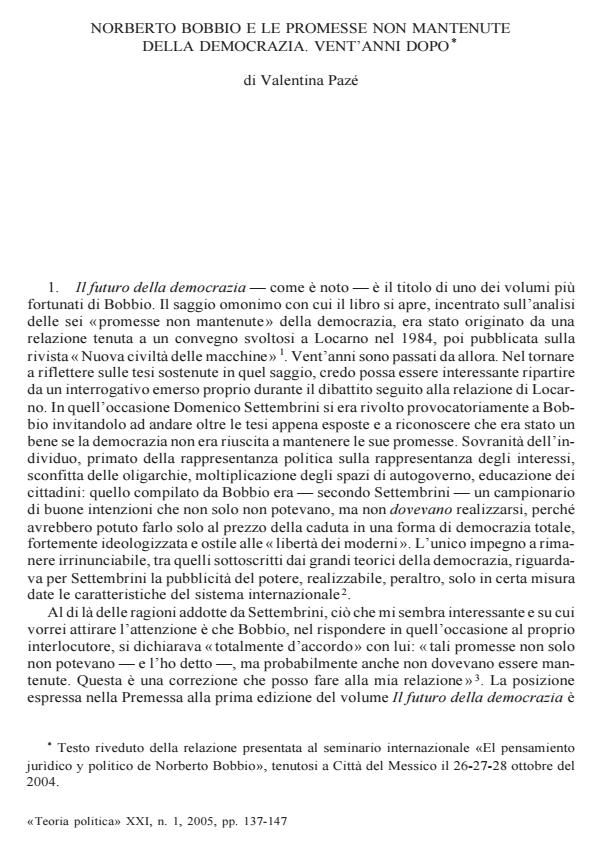Norberto Bobbio e le promesse non mantenute della democrazia. Vent'anni dopo
Titolo Rivista TEORIA POLITICA
Autori/Curatori Valentina Pazé
Anno di pubblicazione 2005 Fascicolo 2005/1 Lingua Italiano
Numero pagine 11 P. Dimensione file 39 KB
DOI
Il DOI è il codice a barre della proprietà intellettuale: per saperne di più
clicca qui
Qui sotto puoi vedere in anteprima la prima pagina di questo articolo.
Se questo articolo ti interessa, lo puoi acquistare (e scaricare in formato pdf) seguendo le facili indicazioni per acquistare il download credit. Acquista Download Credits per scaricare questo Articolo in formato PDF

FrancoAngeli è membro della Publishers International Linking Association, Inc (PILA)associazione indipendente e non profit per facilitare (attraverso i servizi tecnologici implementati da CrossRef.org) l’accesso degli studiosi ai contenuti digitali nelle pubblicazioni professionali e scientifiche
The essay goes throug Bobbio’s famous book twenty years later it was first published. The six «unfulfilled promises of democracy» (individual’s sovereignity, primacy of political representation over representation of interests. defeat of oligarchies and hidden power, mutiplying of self-government areas, education of citizens) are analyzed at the light of a crucial question: was it good or bad that democracy did not fulfill it promises? Rousseau, Bentham, John Stuart Mill’s ideals, which Bobbio takes as a point of reference to reflection on contemporary democracy’s disfunction, may still be shared by XXIst century democrats? The answer is not a simple one. Some promises could not possibly be kept and consequently they cannot be included in the normative model of democracy for our times. Other ones, such as those linked to the defeat of hidden power and money’s oligarchies, can not be divided from a conception of democracy like the one put forward by Bobbio, «minimal» but demanding at the same time.;
Valentina Pazé, Norberto Bobbio e le promesse non mantenute della democrazia. Vent'anni dopo in "TEORIA POLITICA" 1/2005, pp , DOI: